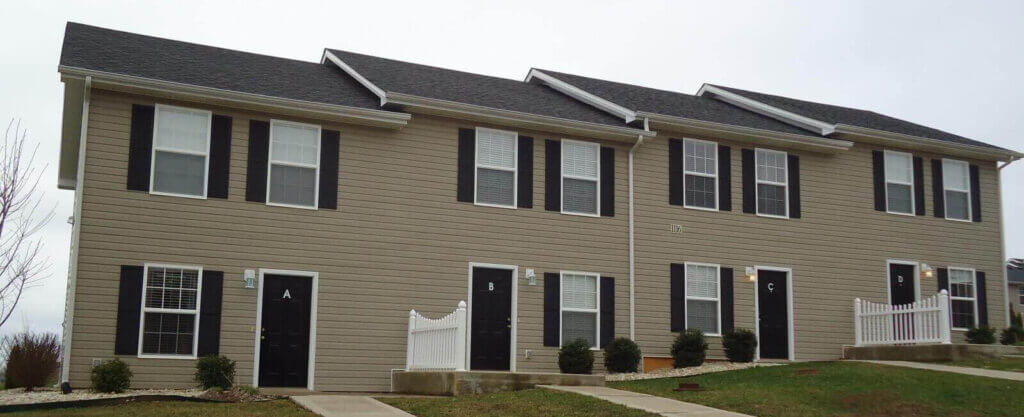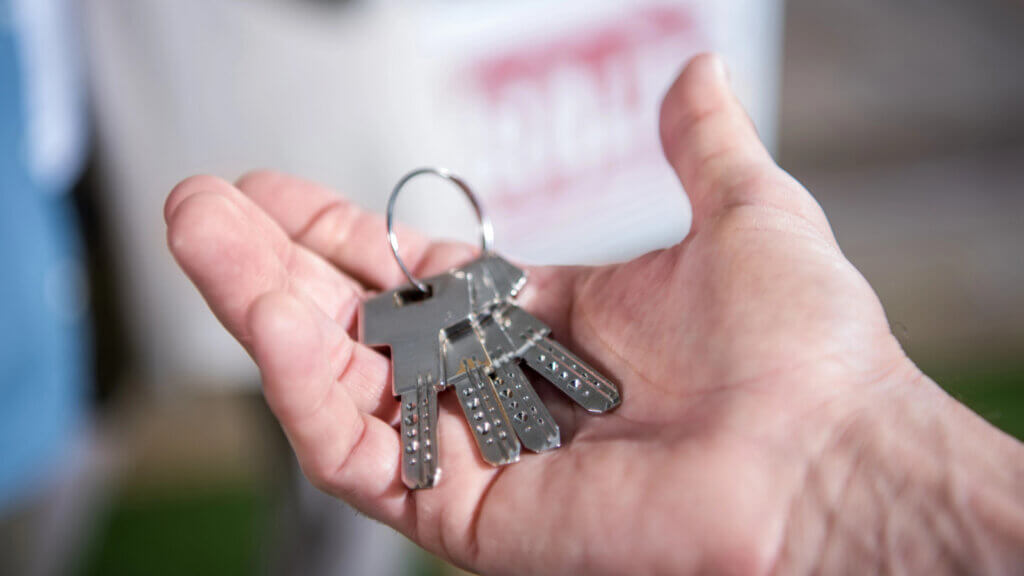What is a Cash Offer in Real Estate?
In essence, a cash offer is an offer to buy a property without requiring a mortgage loan or other financing. It means that the buyer will pay cash and has the liquid assets available to purchase the home outright, thereby hastening the closing process for home sellers.
A Key: A cash offer means the buyer is buying your home without relying on mortgage financing, unlike a traditional buyer. It eliminates the need for loan approval and often streamlines the entire selling process.

Offer from an Individual Buyer vs. a Professional Cash-Buying Company
- Individual Buyers: They’re often homeowners looking to avoid the complexities of mortgages or investors with enough personal funds. They might be looking for a primary residence or an investment property.
- Professional Cash-Buying Companies (iBuyer or Investor): Real estate companies, like iBuyHomes.com, house flippers, and other cash homebuyer firms, specialize in buying properties directly from sellers. Their business model involves purchasing homes “as-is.” They’ll do the renovation before reselling them. Many of these cash buyers operate through online platforms where sellers can submit details of their properties.
Buy Houses: How the Cash Offer Process Typically Works (Step-by-Step)
The cash process is designed for speed and convenience. It’s NOT the same as the lengthy traditional home sale. Here’s the typical breakdown.
-
Request an Offer
The first step usually involves submitting basic information about your property. It can be done online through a company’s website or over the phone. Typically, you’ll provide your address, property type, and some details about its condition.
-
Receive a Preliminary Offer
The cash homebuyer will extend a preliminary, no-obligation, no-closing costs offer based on the details you provide and current market data.
This initial estimate gives you a ballpark idea of what you might receive.
-
Home Assessment
If the preliminary offer is agreeable, the cash buyer will conduct a brief, in-person, or virtual walkthrough of your home.
The assessment is to verify the home’s condition and ensure the initial information is accurate. Many cash homebuyer companies prefer homes in poor condition to renovate and resell.
This can be an advantage if your home needs significant work.
-
Get a Final, No-Obligation Offer
After the assessment, you’ll receive a final, written all-cash offer.
The offer is firm and has no hidden fees. The Federal Deposit Insurance Corporation (FDIC) documentation supports the claim that cash offers generally come with fewer contingencies compared to traditional financed offers.
It simplifies the process for both parties.
-
Close on Your Timeline
One of the most appealing aspects of a cash deal is the flexible closing dates. Often, you can choose a closing date that suits your needs.
It can happen in as little as 7-14 days. It means you can sell quickly, even though at a lower price, and avoid prolonged interest payments and moving expenses.
Cash home buyers can buy houses and complete the transaction quickly, sometimes in as little as a week.
The Pros and Cons: A Fair and Balanced Look
To make an informed decision, it’s crucial to understand both the advantages and disadvantages of accepting a cash offer.
Pros of Cash Offer
- Speed: It’s the biggest appeal. Cash transactions can shorten the selling process.
- The cash buying process generally allows for faster closing compared to traditional sales. Without a mortgage involved and no lender involved, you can close in days, and not months.
- Certainty: Cash offers can eliminate buyer financing fall-through risks. They are more attractive even if the offer is a lot lower.
- There’s no risk of the deal collapsing because of loan approvals or a buyer’s financing deal falling through.
- Once a cash buyer verifies proof of funds that you can request (important), the deal is highly likely to close.
- Convenience: You don’t have to deal with endless showings, open houses, and the hassle of staging your home.
- A hassle-free sale is a major advantage for many sellers.
- “As-Is Sale”: Many cash buyers are willing to buy homes in their current condition.
- It means cash sales often eliminate the need for home repairs, as cash buyers purchase homes as-is.
- You can save money and time that would otherwise be spent on repairs, renovations, or updates.
- Fewer Contingencies: Many cash buyers provide a more straightforward transaction without the complexities of inspections, appraisals, etc.
Cons of a Cash Offer
- Lower Offer Price: It’s the primary trade-off for speed and convenience.
- A cash offer is below the full retail market value you might get in a traditional method on the open market. It’s because cash buyers are taking on the risk and cost of repairs.
- They hold costs and their profit margin.
- Not all cash buyers aim for a competitive offer.
- It’s not the highest price you might achieve.
Who is an All-Cash Offer Best for? (Ideal Seller)
A cash offer isn’t for everyone. However, for certain seller profiles, it can be an incredibly valuable solution.
This section will help you determine if this option to sell your home is the right fit for you.
Cash sales are particularly beneficial for certain types of sellers who prioritize speed, convenience, and certainty over maximum sale price. These situations include:
-
The seller who needs to relocate quickly for a jobIf you have a tight deadline to move because of a new job opportunity, a cash deal can provide you the speed you need so you don’t have to juggle two mortgages or temporary housing.
-
The seller who is interested in an unwanted propertyInherited homes can often be neglected, filled with personal belongings, or in need of significant repairs. A cash homebuyer can provide a quick and easy way to offload such a property to potential buyers without the emotional or financial burden of preparing it for the market.
-
The seller is facing financial hardship (e.g., pre-foreclosure)If you’re facing time-sensitive financial challenges, a cash sale can offer you a fast way to access equity and avoid foreclosure. It provides a much-needed lifeline.
-
The seller whose home needs significant repairs that they can’t affordIf your home requires substantial renovations or updates that you can’t finance, a cash buyer who specializes in “buy ugly houses” scenarios can be an ideal solution. They’re ready to buy a home as-is, saving you time, money, and stress.
When Traditional Sales Are Better
A traditional sale is superior when your main goal is to get more money by reaching or exceeding your home’s fair market value. Listing your home online with an agent, typically a member of the National Association of Realtors, creates competition among prospective buyers that can lead to higher offers. While this process involves a service fee and other fees, a good agent helps you navigate offers and vet a buyer’s financial strength, which is as critical as a funds letter in a cash deal. In a strong seller’s market, waiting for the right financed offer is often the most profitable route, relying on professional agent standards over a company’s Better Business Bureau rating.
Accepting a Cash Offer or Not: Making the Right Choice
A cash offer method presents an attractive option. However, the trade-off is often a lower asking price compared to what you might get by listing it on the open market, hiring a real estate agent, and attracting multiple offers, favorable terms, better prices, multiple buyers, or interested buyers.
Ultimately, the best-selling method depends on your circumstances, priorities, and your home’s condition.
If you’re curious to see what a no-obligation cash offer for your home looks like, please contact us.



